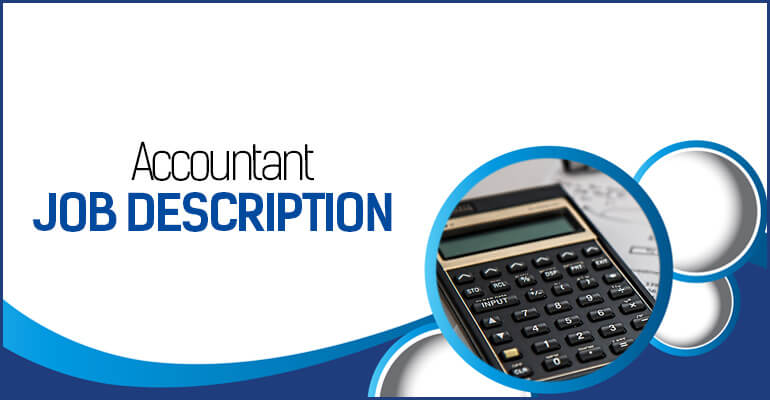Financial records tell managers, investors, regulators, other stakeholders and the public the financial health of an organization. These documents take the form of balance sheets, income statements and cash flow statements. Inaccuracies can breed losses and liability for organizations and their directors and employees. Organizations also need assistance in ensuring that payroll complies with tax and other regulations and that waste and fraud are detected and abated. The junior accountant job description details the duties and skills that achieve these objectives.
What Does a Junior Accountant Do?
Junior accountants help preserve their organizations’ record of financial activities and condition. The work requires meticulous examination of receipts, vouchers, invoices, deposit slips and other documentation of transactions to build ledgers, statements and reports. As junior staff members, these accountants report to senior accountants.
Junior Accountant Job Description for Resume — Responsibilities
- Reconcile organization’s bank accounts
- Keep and oversee the company’s general ledger
- Compile and examine receipts, invoices, credit card account statements, expense reports and other records of transactions by organization or employees
- Prepare balance sheets, income statements and cash flow statements for review by senior accountants
- Maintain organization’s tax records and assist with preparing and filing tax returns
- Report financial condition of organization to senior accountants, managers or directors, with written summaries
- Organize receipts, vouchers, bills, bank statements and other financial records
- Aid with auditing statements and records
- Evaluate organization’s compliance with internal controls
- Process payroll for employees and disbursement of earnings to owners
Junior Accountant Essential Skills
Analytical. Junior accountants rely on analytical skills to find discrepancies between financial statements and supporting documents and departures from internal controls. Examination of income and expense items helps these accountants properly assign them to the proper accounts.
Communication. The job description of a junior accountant includes the ability to clearly convey findings, conclusions and concerns arising from financial records and audits. Senior accountants and organizational leaders depend on concise and accurate reports to decide on transactions, increase or reduction of staff and other operations of the business or organization. Oral communication skills are practiced in discussions with supervisors or presentations to boards.
Computer. Junior accountants need the ability to use accounting software such as Intuit Quickbooks and Sage 50 Accounting and tax preparation software. Spreadsheets also help junior accountants track and tabulate transactions and account activity. Other computer skills include using word processors and PowerPoint for preparing reports and email applications.
Math. Performing basic math operations constitutes a significant part of a junior accountant’s duties. Software helps in many calculations and arriving at totals. Junior accountants must also know and apply financial ratios such as debt-to-equity and debt-to-income. For junior accountants who prepare taxes, the ability to calculate taxes based on marginal rates represents an important skill.
Organizational. Junior accountants use organization to categorize revenues, expenses, assets and liabilities and sort documents and information. On ledgers, junior accountants order transactions often by date or account or a combination of these categories.
Becoming a Junior Accountant
The foundation for a junior accountant’s job consists of a mix of business, finance and accounting knowledge, skills and experience. Junior accountants who aspire to practice public accounting or who prepare items to be filed with the U.S. Securities and Exchange Commission must be Certified Public Accountants.
Junior accountants in the managerial arena need not be licensed or certified, as they focus their work on the internal operations and efficiency of the organization.
Education and Training
Junior accountants generally must hold at least a bachelor’s degree in business, accounting or finance or a related academic discipline. For prospective public accountants, five-year programs combine a bachelor’s degree in business administration and master’s degree in accounting.
Accountants who concentrate on auditing major or minor in information technology. Such programs prepare these junior accountants to examine the security of financial and other data stored digitally.
For prospective accountants working for organizations or in sectors, coursework specific to the industry is helpful to learn the essential operations and sources of revenue streams and expenses. For example, accounting students should take health administration classes to prepare for work in hospitals and health insurance companies. Those aspiring to work for government agencies should make public administration and political science part of their curriculum.
Graduates of bookkeeping or accounting programs in technical or community colleges can qualify for junior accounting roles in some companies.
Work Experience
Experience requirements for junior accountant applicants vary by the type of employer. Accounting firms likely will hire new graduates with strong academic credentials or experience through internships in summer work. Internships can afford practical experience also for aspiring accountants to land jobs with companies, nonprofits and governments.
For some organizations, prior accounting experience serves as a preference or requirement. Nonprofit organizations or local governments may require candidates to have been accountants in similar entities.
Work Schedules
Junior accountants can expect to work sometimes beyond 40 hours per week. According to the U.S. Bureau of Labor Statistics, approximately 20 percent of accountants and auditors found themselves in this category.
Tax season creates extended work periods, including nights and weekends. Junior accountants who prepare returns for yearly filers will begin receiving forms and other records early in the new calendar year. Activity for junior tax accountants peaks especially between February and the middle of April, when tax returns must be filed. Quarterly filing of tax returns may increase work hours at other points throughout the year.
Junior accountants in governments, business and organizations that operate on other than a calendar year basis face deadlines for finishing reports at other times. For example, year-end reports for an organization with a July 1 to June 30 fiscal year would need to be prepared likely in May or June, generating expanded work time on those weeks or months for junior accountants.
Career Prospects
According to the U.S. Bureau of Labor Statistics, the “Accountants and Auditors” occupation should grow by approximately 11 percent by 2024, or 142,400.
Technology and stricter lending and regulatory standards should cause organizations to continue the steady employment of junior accountants. Computers, digital and cloud technology have enhanced the flow and storage of information. With these technical advancements come challenges for preserving the integrity and security of the information. Auditors in particular will meet the demand of inspector and strengthening internal controls.
Falls in the economy overall and the financial sector have sprouted tighter rules for lending and record keeping. Junior accountants must ensure that the financial reports are accurate, based on reliable data and otherwise show the true creditworthiness of organizations.
Conclusion
Junior accountants must exercise care in preparing accurate and reliable statements and reports. Those inside and outside the organization rely on the information they help present for operational and investment decisions.
Job opportunities should abound for qualified junior accountants as companies, charities and other organizations must traverse through a landscape of regulations and risks of fraud and inefficiency.




